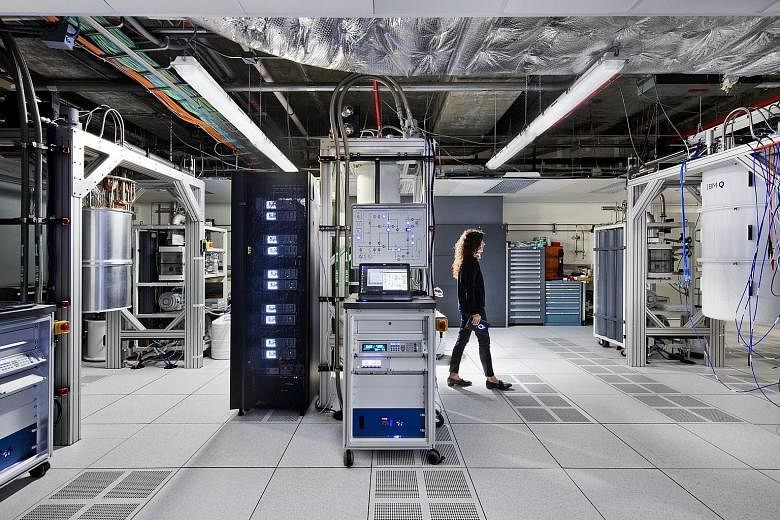Computing giant IBM and the National University of Singapore (NUS) have embarked on a three-year collaboration to find ways to use quantum computing to solve real-world problems and train quantum scientists.
Quantum computers are currently used in many areas, including medical research into new drug development and the enhancement of cyber security in the financial sector.
The collaboration between IBM and NUS, announced yesterday, is the first of its kind in South-east Asia and gives NUS researchers access to 15 of IBM's powerful quantum computing systems via a cloud service.
It was made possible through the Quantum Engineering Programme (QEP), a $25 million, five-year initiative funded by the National Research Foundation that was launched in July 2018 and is managed by NUS.
The small number of quantum computers has made it difficult for researchers to access them in the past, stalling potential applications. With the cloud service, NUS researchers can access the quantum computers remotely.
"We are already at the taking-off point, but there is still a big gap to bridge between real-world problems and the algorithms for quantum computing," said QEP co-director and NUS head of electrical and computer engineering John Thong.
"So we need to educate a lot more programmers and we hope to train as many as possible (under this collaboration) to use the IBM system."
IBM will also organise local hackathons and developer camps to increase awareness and skills in quantum computing. NUS is the first South-east Asian academic institution to join the IBM Quantum Network, which has more than 100 members including heavyweight companies such as Samsung, ExxonMobil and Daimler.
IBM Asia-Pacific general manager Brenda Harvey said the collaboration made sense, given Singapore's history of being a leader in innovation and IBM's own relationship with NUS that dates back to 1981.
"As part of our network, NUS will have access not just to our technology but also to joint development opportunities that will grow quantum expertise and help Singapore to be quantum-ready," she added.
Quantum computers perform calculations with quantum bits that can be represented with a zero and a one, just like regular computers. However, a quantum bit can exist as both zero and one at the same time.
Calculating with flexibility and dealing with uncertainty make quantum computers faster and better at working on complex, real-world problems.
QEP co-director Kwek Leong Chuan underscored the importance of developing a substantial talent pool in quantum computing.
"We are really only at the initial stage but we are already seeing plenty of interesting applications. For example, devices known as quantum detectors can be used to detect objects below sea level, such as when planes go under the sea," said Dr Kwek, who is from the NUS Centre for Quantum Technologies.
"It is really up to the imagination and ingenuity of young, creative researchers to come up with even more applications," he added.


